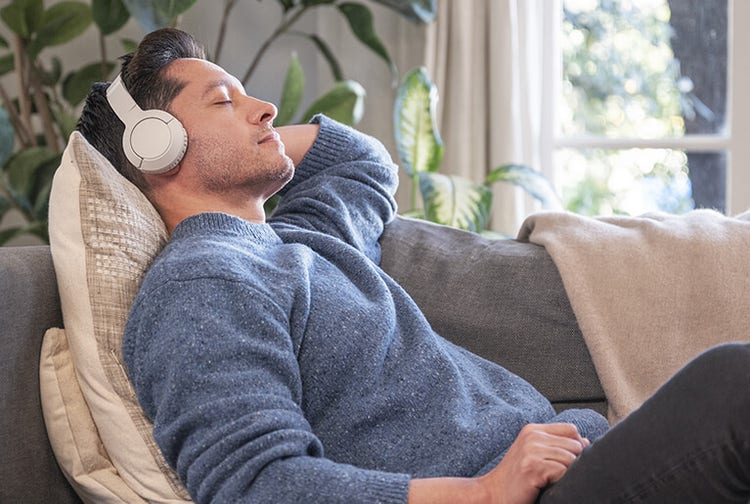Well-being


The Brain-Gut Connection
If you’ve ever “gone with your gut” to make a decision or felt “butterflies in your stomach” when you’re nervous, you’re likely getting signals from an unexpected source: your second brain. That's the brain-gut connection, and it's changing how doctors consider the links between digestion, health, and the way your mind works.
For someone living with UC, the signals can be disrupting. This can affect your psychological state and your emotional response.
74%
Did You Know?
According to a 2015-16 healthcare utilization analysis, adults with IBD were 74% more likely to have seen a mental health provider in the past 12 months compared with those without IBD.1
Know Your Triggers
- Stress may cause flare-ups for people with UC, so it's important to keep track of what your triggers are so that you can take steps to minimize them
Take Some Downtime
- Giving yourself dedicated downtime during the day may have an impact on your overall well-being. Taking the time you need to rest, may help you feel recharged and ready to do what you love, because living with UC shouldn't keep you from missing out on the things you enjoy
Preparing to Go Out
- Consider using a bathroom finder app to map out bathrooms. Familiarize yourself with your surroundings so your symptoms don’t disrupt your plans
Being Out in Social Situations
- Call restaurants ahead of time so they can accommodate you sitting close to bathrooms. Also check out the menus ahead of time, so you know what your options are
- If you're outdoors, a quick online search may provide a list of the best public bathrooms in your area
Develop Healthy Coping Skills
- Try different coping mechanisms to help manage stressful situations and anxiousness, like taking breaks from news stories, getting enough sleep, making time to unwind, and connecting with others
Considering Therapy: A therapist can be a valuable resource. Asking your doctor for a recommendation may be a good place to start.
Making It Work At Work
- Keep an extra set of underwear, clothes, and moist wipes at your workstation
- Take occasional breaks from the job to clear your head
- Carry a water bottle to stay hydrated throughout the day
- Speak up if you need help or some changes to your work situation so you can get the job done
Enjoying Restaurants
- Have a say in picking a restaurant/cuisine
- Locate the restroom when you arrive
- Decide what and how much you will eat before you get to the restaurant
- Choose a seat where you can more easily get up from the table if needed
- Consider how you will answer if someone asks why you’re ordering a dish a certain way
- Think about the drinks as well, and maybe opt for a non-alcoholic or a decaf option
Taking a Trip
- Share your “safe to eat” list with your friends and family ahead of time, and for business travel, check the menu in advance
- Map out rest stops along the highway
- Consider where you will sit as you’re traveling. An aisle seat on a plane or train may help you access the bathroom more easily
- Pack the following in your carry-on: spare clothes, wipes, pads, your medications and a list of what they do, doctor's contact information, and a letter from your doctor explaining your condition in case of emergencies
Playing Sports & Exercising
- Be sure to drink lots of water before and after a workout, particularly if you’re having diarrhea which can leave you dehydrated
- When you're looking to get outside, consider low-impact exercises such as bicycling, swimming, yoga, or even a brisk walk
- Exercising indoors rather than outside can help when you’re feeling like you need to be close to a bathroom
- Find an appropriate workout routine online you can do at home if you're experiencing a flare and not comfortable being around others in a group class
- - Terlizzi EP, et al. Health care utilization among U.S. adults with inflammatory bowel disease, 2015–2016. National Health Statistics Reports 2021;152.


